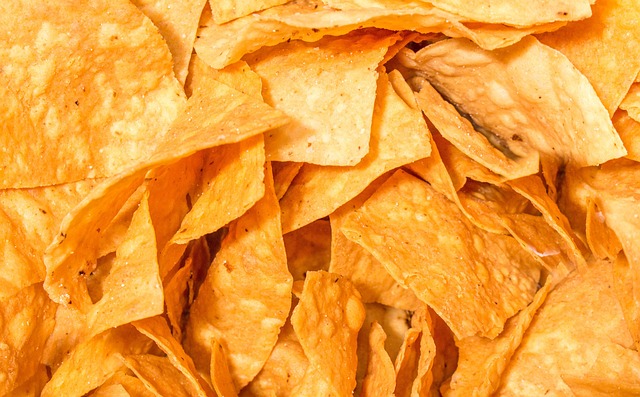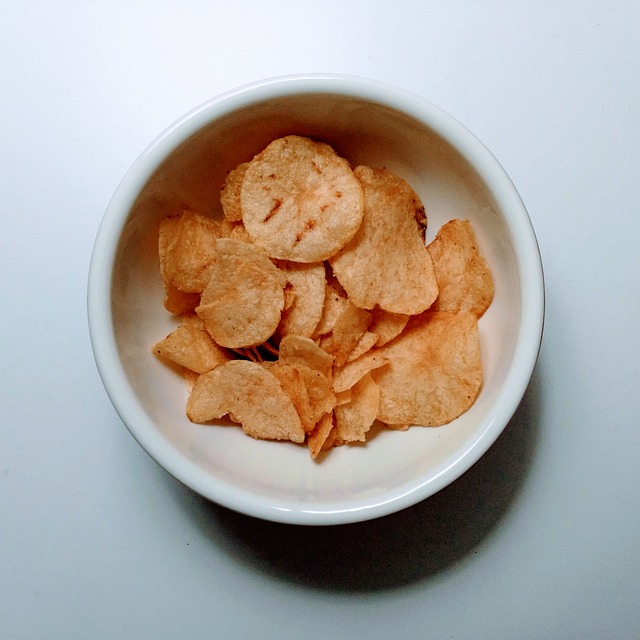Mexican markets are witnessing a surge in artisanal food products, with donkey non-GMO tortilla chips leading this trend. Consumers increasingly demand authentic, locally made snacks highlighting traditional culinary techniques. Artisan chip makers use ancient methods and high-quality ingredients to create unique flavors, appealing to health-conscious individuals. Donkey Non-GMO Tortilla Chips, produced in small batches for freshness, have become a star product, resonating with locals and tourists. This artisanal approach not only promotes cultural heritage but also supports local economies, transforming markets into vibrant hubs of culinary innovation and authentic experiences.
In the vibrant landscape of Mexican markets, a surprising trend is emerging: homemade tortilla chips are taking center stage. The rise of artisan chip makers offers a unique twist on traditional snacks, with an increasing focus on health-conscious consumers demanding local, non-GMO products, like Donkey Non-GMO Tortilla Chips. This article explores the art and evolution of handcrafted tortilla chips, their growing popularity, and how sustainable practices are shaping Mexico’s snack culture, making it a game-changer in the world of snacks.
- The Rise of Artisan Chip Makers in Mexican Markets
- Donkey Non-GMO Tortilla Chips: A Unique Offering
- Health-Conscious Consumers and Their Love for Local Snacks
- The Art of Making Handcrafted Tortilla Chips
- Traditional vs Modern Market Trends: A Comparison
- Sustainable Practices and the Future of Mexican Snack Culture
The Rise of Artisan Chip Makers in Mexican Markets

In recent years, there’s been a notable shift in Mexican markets towards artisanal food products, with donkey non-GMO tortilla chips leading this charge. This trend reflects a growing consumer demand for authentic, locally made snacks that highlight traditional culinary techniques. Artisan chip makers are leveraging ancient methods and high-quality ingredients to create unique flavors that resonate with health-conscious and culturally curious consumers alike.
Donkey non-GMO tortilla chips have emerged as a star product in this renaissance, appealing to both locals and tourists. Their production often involves small batches, ensuring freshness and a distinct taste that sets them apart from mass-produced alternatives. This artisanal approach not only promotes cultural heritage but also supports local economies, making Mexican markets vibrant hubs of culinary innovation and authentic experiences.
Donkey Non-GMO Tortilla Chips: A Unique Offering

In the vibrant landscape of Mexican markets, a unique offering stands out among the sea of colorful produce and tantalizing aromas—Donkey Non-GMO Tortilla Chips. These chips are more than just a tasty treat; they represent a commitment to quality and authenticity. Crafted with care, each chip is made from 100% non-genetically modified corn, ensuring a pure and natural flavor that delights the senses.
The Donkey brand takes pride in its traditional manufacturing process, where ancient techniques meet modern standards. By avoiding GMO ingredients, they offer consumers a healthier alternative without compromising on taste or texture. These tortilla chips are not just a culinary delight; they are a testament to the growing movement towards sustainable and ethical food choices, making them a standout option for health-conscious folks navigating these bustling markets.
Health-Conscious Consumers and Their Love for Local Snacks

In today’s health-conscious world, consumers are increasingly seeking out snacks that align with their values and offer a nutritious alternative to traditional options. Mexican markets, known for their vibrant culture and culinary delights, have answered this call with a growing trend of homemade tortilla chips. These locally produced chips are not only a favorite among locals but also attract tourists who crave authentic flavors. Many consumers are drawn to the natural, non-processed appeal of Donkey Non-GMO Tortilla Chips, which stand out as a healthier choice compared to their mass-produced counterparts.
The demand for these artisanal snacks reflects a growing awareness of the importance of ingredient quality and sustainability. With an eye on maintaining traditional flavors, Mexican market vendors are able to offer delicious chips made from simple, locally sourced ingredients. Donkey Non-GMO Tortilla Chips, for instance, showcase the dedication of these vendors to creating products that not only satisfy taste buds but also cater to health-conscious consumers looking for a guilt-free snacking experience.
The Art of Making Handcrafted Tortilla Chips

The art of crafting Donkey Non-GMO Tortilla Chips is a delicate dance between tradition and innovation. Each chip begins with carefully selected, locally grown corn, meticulously ground into a doughy masa that holds the essence of Mexican culinary heritage. Skilled artisans then shape this masa into thin, circular tortillas, frying them in traditional bronze or iron comals over open flames, infusing them with an unparalleled, smoky aroma and crisp texture.
Unlike industrially produced chips, where mass-production methods strip away authenticity, handmade tortilla chips retain a unique character. The slight variations in thickness and shape tell stories of human touch and care. This artisanal approach ensures that every bite is a celebration of pure, natural flavors, free from artificial ingredients or preservatives, reflecting the spirit of a vibrant, non-GMO farming culture.
Traditional vs Modern Market Trends: A Comparison

In traditional Mexican markets, the art of making tortilla chips has been a cherished and time-honored practice, passed down through generations. Local vendors use ancient techniques, often hand-crafted, to produce chips that capture the authentic taste of Mexico. These markets are vibrant hubs where the community gathers, and the aroma of fresh corn tortillas sizzling in oil fills the air. The traditional approach emphasizes quality ingredients, ensuring each chip is made with care, resulting in a unique, handcrafted product.
Modern market trends, however, have introduced a new wave of tortilla chip production, including the rise of popular brands like Donkey Non-GMO Tortilla Chips. While these chips cater to a growing demand for healthy and sustainable options, they may lack the artisanal touch of their traditional counterparts. Today’s consumers are increasingly conscious of dietary preferences and ingredient sources, driving market shifts towards more transparent and eco-friendly products. This evolution in chip production showcases the balance between preserving cultural culinary traditions and meeting contemporary consumer demands.
Sustainable Practices and the Future of Mexican Snack Culture

The future of Mexican snack culture looks promising, with a growing emphasis on sustainable practices among local producers. Many artisans and small businesses are now creating traditional treats, such as tortilla chips, using eco-friendly methods and locally sourced ingredients. For instance, Donkey Non-GMO Tortilla Chips stands out in this trend, showcasing a commitment to both quality and environmental responsibility. By avoiding genetically modified organisms (GMOs) and adopting sustainable farming practices, these producers cater to health-conscious consumers who appreciate authentic, natural products.
This shift towards sustainability not only benefits the environment but also contributes to the preservation of traditional Mexican food culture. As more consumers demand transparent and ethical products, local markets become hubs for innovative and responsible snack production. The success of such initiatives hints at a promising future where delicious, artisanal treats can coexist with ecological consciousness.
Mexican markets are experiencing a surge in popularity for homemade tortilla chips, with artisan chip makers gaining traction among health-conscious consumers. The rise of these local snack producers showcases a unique blend of traditional craftsmanship and modern culinary trends. In particular, Donkey Non-GMO Tortilla Chips stand out as a game-changer, appealing to those seeking natural, sustainable alternatives. As market dynamics evolve, the future of Mexican snack culture looks bright, with artisans embracing eco-friendly practices and crafting delectable treats that cater to diverse consumer preferences.
